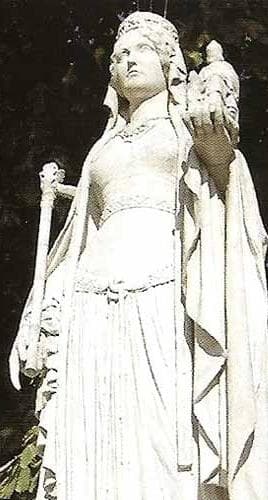
Blessed Bertrada Of Laon
Blessed
Feast Day: March 24
Death: July 12, 783
Biography
Blessed Bertrada of Laon, also known as Bertrada the Pious, Bertrada la Pia, Bertha, or Berta, was a remarkable figure in medieval history. She was born in the year 726 and lived until the 12th of July, 783, when she passed away peacefully due to natural causes. Bertrada is best known for her marriage to King Pepin the Short, making her the Queen of the Franks. Together, she and Pepin had a son named Blessed Charlemagne, who would go on to become one of the most famous and influential rulers of the Middle Ages.
Though Bertrada's life has been overshadowed by her illustrious husband and son, she played a significant role in their rise to power and success. Unfortunately, much of the information about her has been lost over time, leaving a veil of mystery surrounding her life and achievements. However, her influence as a supportive and devoted wife and mother cannot be underestimated.
Bertrada's devotion to her family and her deep Catholic faith are considered the defining characteristics of her life. As the Queen of the Franks, she had the responsibility of maintaining the peace and welfare of the kingdom, while also supporting her husband's ambitions. Throughout her life, Bertrada demonstrated intelligence, wisdom, and an unwavering dedication to her Catholic beliefs.
Following her passing, Bertrada was buried in the prestigious abbey of Saint-Denis in France. Saint-Denis holds the distinction of being the traditional burial place of French monarchs, lending further significance to Bertrada's connection to royalty.
Although Bertrada's formal veneration status, such as her official canonization as a saint or beatification, remains unknown, her beloved role as the mother of Blessed Charlemagne has led to her inclusion in the list of blessed individuals within the Catholic tradition.
Despite the lack of detailed information, the life of Blessed Bertrada of Laon serves as a testament to the power of faith and the important role of women in medieval dynasties. She has been remembered throughout history as a woman of virtue, strength, and piety, whose influence helped shape the destiny of her family and the legacy of the Carolingian dynasty.